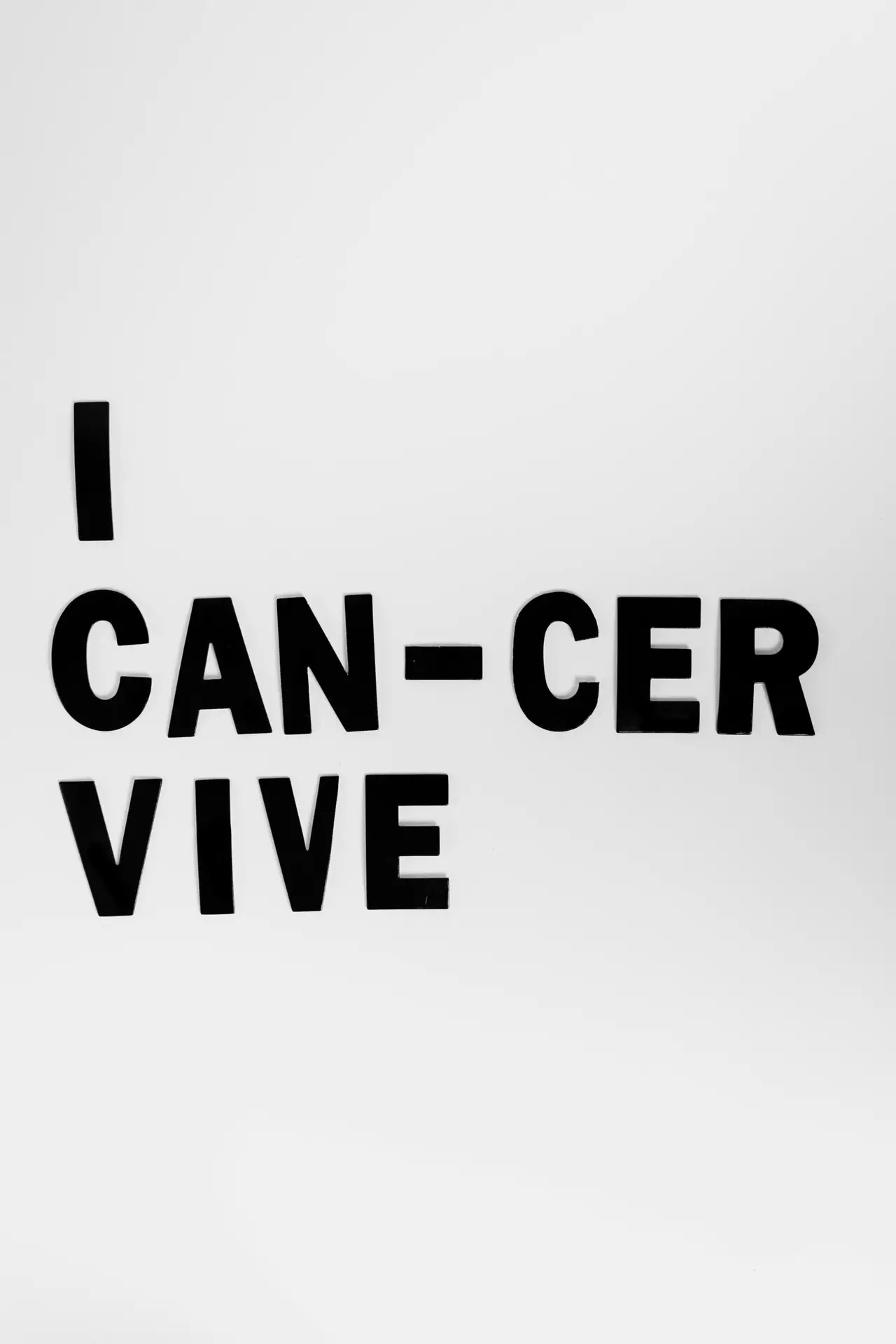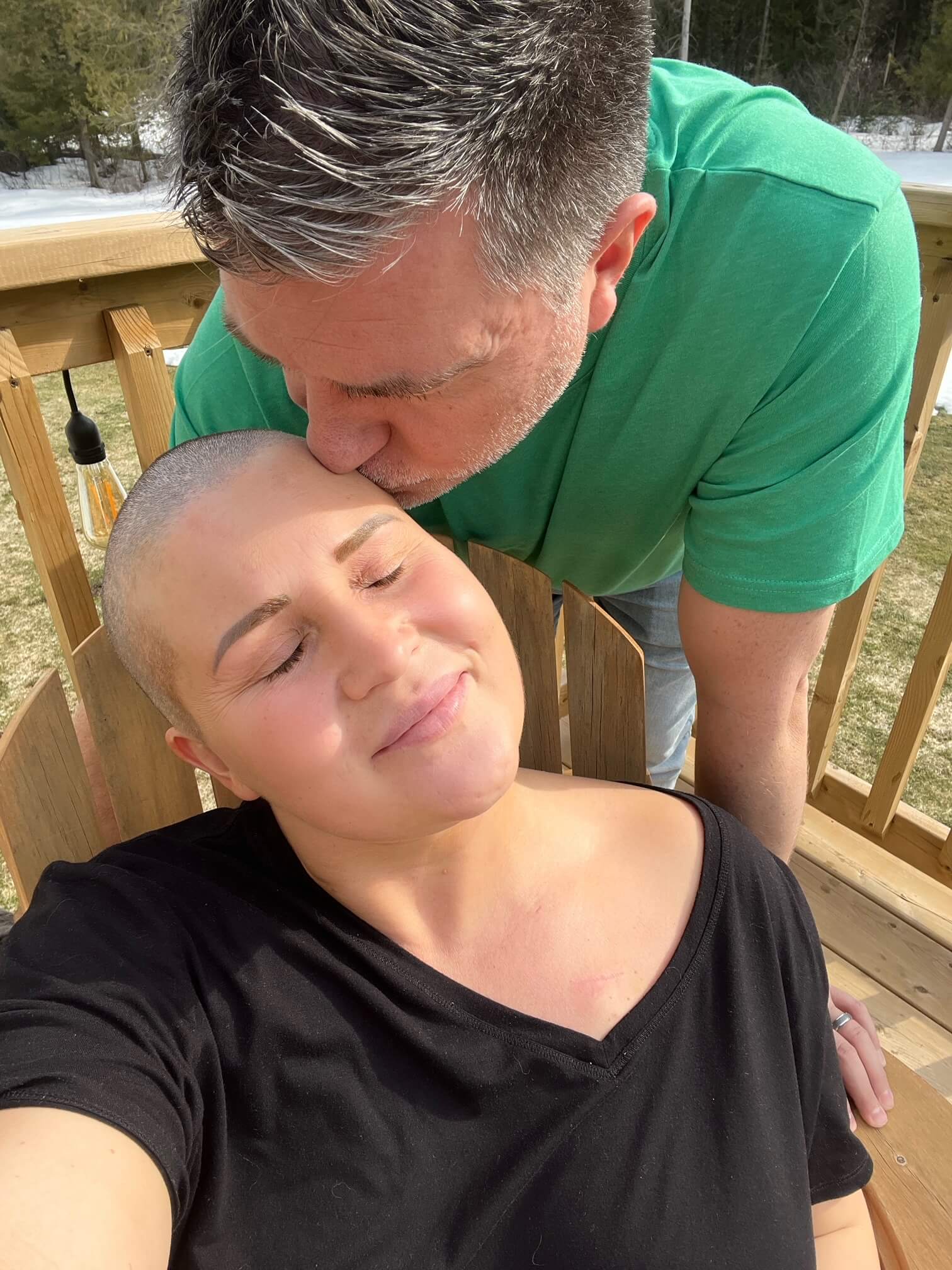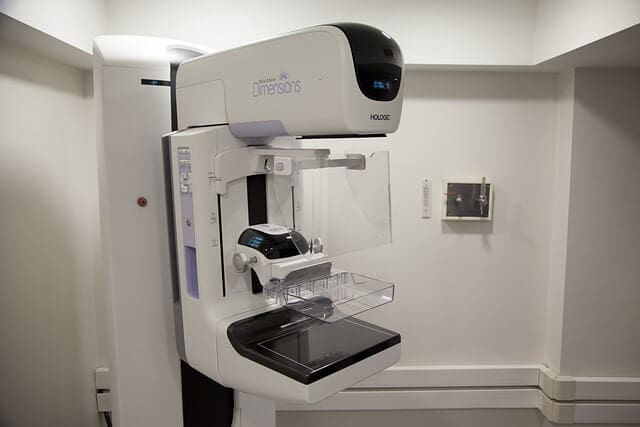It’s too late to spare me, but I have hope that my 23-year-old daughter, 27-year-old daughter-in-law and other young women may someday be spared the trauma and hardship of a breast cancer diagnosis. Immersed in this world thanks to the advocacy work I’m doing and AskEllyn, I am exposed to some of the incredible strides the world is making in breast cancer research and medical innovation. Being a tech nerd, the innovation that excites me the most surrounds early breast cancer prevention and detection. We know that cancer prevented or caught early can save lives and spare the healthcare system the burden of resources and costs. The breakthroughs I’m hearing about bring exciting promise to millions of women globally.
The Breast Cancer Vaccine
One of the most exciting developments in recent years is the concept of a breast cancer vaccine. Yes, you heard that right—a vaccine against breast cancer. It’s a concept that was once relegated to science fiction, but thanks to the relentless efforts of researchers and scientists, it’s now becoming a tangible reality.
Imagine a world where women no longer have to fear the devastating diagnosis of breast cancer. A world where a simple vaccine can provide lifelong protection against this insidious disease. It’s a world that many of us have dreamed of, and thanks to the pioneering work of researchers it may soon become a reality. Vaccines are now in clinical trials and may become a reality within the next five years if all goes well. We know cancer vaccines can work. Widespread use of the HPV vaccine is now showing it is highly effective in preventing the occurrence of cervical cancer. In Sweden a study of nearly 1.7 million women showed that the HPV vaccine’s efficacy was particularly pronounced among girls vaccinated before age 17, among whom there was a nearly 90% reduction in cervical cancer incidence during the 11-year study period (2006 through 2017) compared with the incidence in women who had not been vaccinated.
But the fight against breast cancer doesn’t stop there. In addition to prevention, early detection is crucial for improving outcomes and saving lives. And thanks to advances in technology, we now have a myriad of tools at our disposal for detecting breast cancer in its earliest stages.
Wearable Ultrasound for Breast Cancer Detection
Also emerging are portable devices and wearables for breast cancer detection. One such innovation is a wearable ultrasound scanner that can be used by women identified as high risk for breast cancer. This flexible patch is attached to a bra, allowing the wearer to move an ultrasound tracker along the patch and image the breast tissue from different angles. Researchers have shown that with the patch they could obtain ultrasound images with resolution comparable to that of the ultrasound probes used in medical imaging centers.
Researchers I know (and from time to time advise) at the University of Waterloo here in my hometown are working on technology that uses low frequency electromagnetic waves to detect early-stage breast cancer. Their methods promise to be more effective in spotting cancer in women with dense breasts and more cost-effective, allowing diagnostic methods to be deployed more broadly globally. The technology is only “bench ready” at this point and a long way from full commercialization but it’s exciting nevertheless.
But perhaps even more revolutionary are technologies that allow for the early detection of breast cancer through non-invasive means, such as breath analysis, saliva samples and blood tests.
Breath Analysis for Breast Cancer Detection
Breath analysis, also known as volatile organic compound (VOC) analysis, involves detecting subtle changes in the composition of a person’s breath that may indicate the presence of breast cancer. Studies have shown that certain VOCs are associated with the metabolic processes of breast cancer cells, making breath analysis a promising tool for early detection and monitoring of the disease. Keep your eye on companies like Breathe Biomedical. The team there is doing very interesting work in this area. It has brought on breast cancer thought leader Dr. Rachel Brem as its medical advisor and the company’s technology is on a path to commercialization.
Researchers from the University of Taiwan are also working on a portable, low cost, non-invasive, effective handheld that can detect breast cancer using a small saliva sample.
Blood tests for breast cancer detection such as those from Synatra are already in market. Tests like these detect specific gene expression biomarkers or circulating tumor cells that are indicative of the presence of breast cancer. They can complement or support traditional imaging modalities and are particularly well-suited for use in developing and middle-income nations where resources may be limited.
As I said, I’m a tech nerd, so the potential to harness innovation to level the playing field and ensure that all women, regardless of their socioeconomic status or geographic location, have access to life-saving breast cancer care is incredibly exciting. That and the drive to protect young women like my daughter and daughter-in-law from breast cancer occurrence keeps me motivated to create change.
It’s a mission that inspires me every day. And I’m proud to be a part of a global community upporting these amazing researchers as they work tirelessly to make these innovations a reality and to eradicate breast cancer once and for all.




